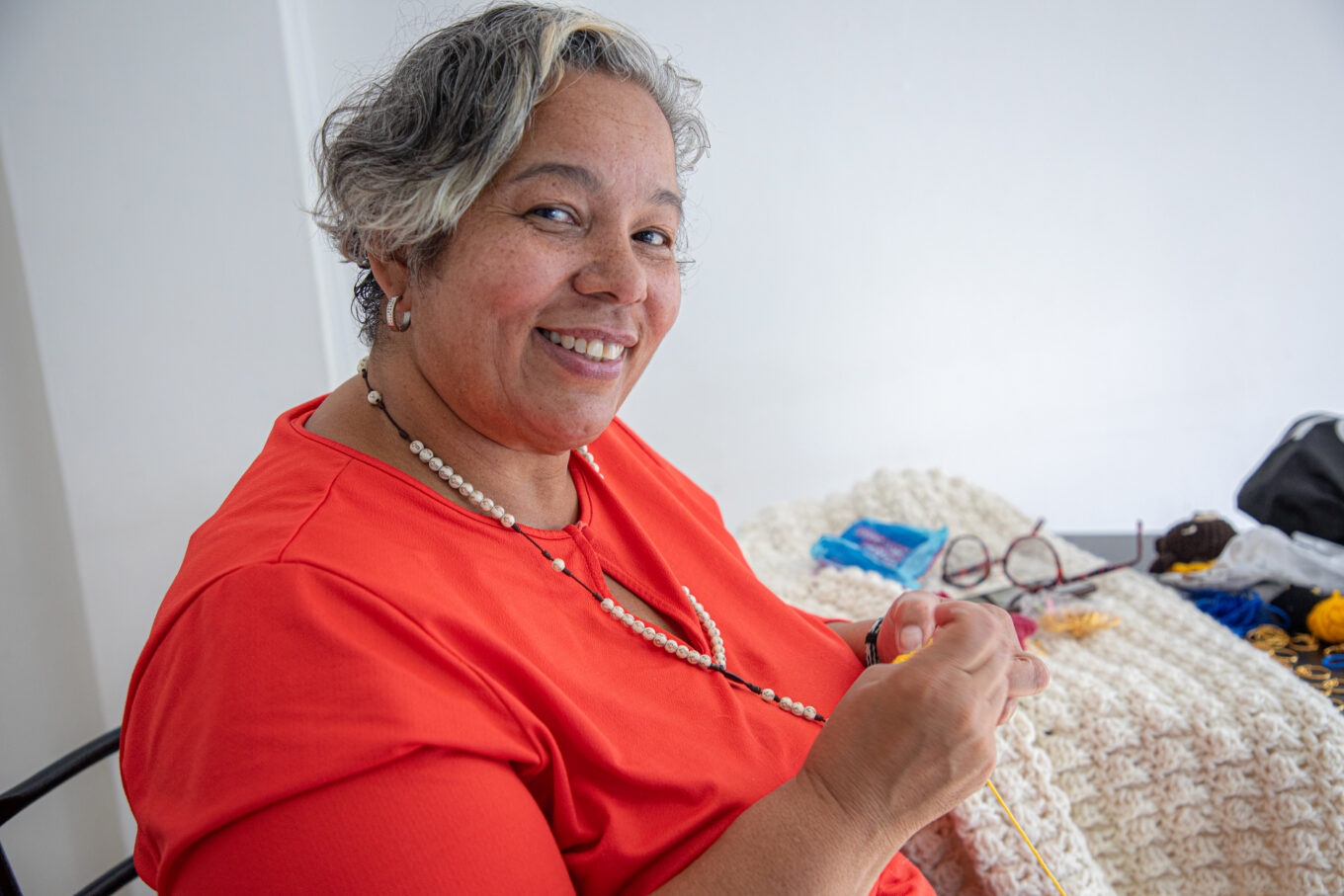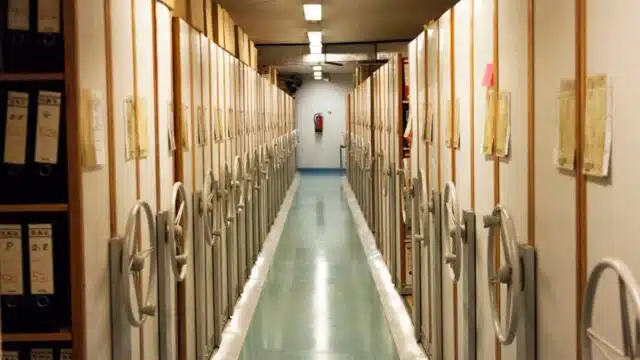
Ida crocheting, a craft that reminds her of Venezuela and helps her earn a living in Ecuador. © UNHCR/Coralía Proaño
The regularization process in Ecuador has allowed thousands of people forced to leave their countries to access basic services, health and formalize their businesses
By Coralía Proaño in Quito, Ecuador
Having a regular status is a significant step towards the integration and protection of the rights of displaced people seeking to rebuild their lives alongside their hosts.
Ida Sandrea always has a smile on her face when she has a thread and needle in her hands. From a young age, the 54-year-old Venezuelan discovered a deep passion for crochet, a craft she has mastered to dress beauty queens back in Maracaibo – a memory seared in her mind as she crochets in her new home in Ecuador. Though far from the land that saw her grow up, Quito has given her a new beginning and the regularization process implemented by the Government, the peace of mind she sought for.
“It is essential to be regularized. Owning a business, I need to charge customers with my own bills. Now I have my identity card and a bank account, I feel safer,” Ida pointed out.
Pushed from their country by insecurity and little opportunities, Ida and her daughter arrived irregularly to Ecuador back in 2021. The lack of proper documentation made her feel worried everywhere she went. “I knew we had to travel with documents, but back home it was impossible to secure them,” she added.
In 2022, the Government of Ecuador launched a second regularization exercise to help tens of thousands of people who had lost their regular status or arrived irregularly until June that year. Open to people of all nationalities, including the over 400,000 Venezuelans in the country, interested applicants had to undergo a registration process before applying for a visa and an Ecuadorian ID.
Ida was uneasy, but determined to do all she could to obtain a regular status. “Lack of knowledge and my role as a community leader led me to learn about regularization” she said. She sought information and orientation in several organizations and social media, until she was able to secure her passport to begin the process. Ida also helped others in need, referring them to where they could receive support to begin their process and ensuring everyone understood the importance of regularizing their status in the country.
“Dreams can come true, but to achieve them you must work on them. Part of that work is to be regularized. My goal has always been to be a community leader, so I (help others) as a volunteer. I strive to be a person who is always supporting those who need it, to defend their rights,” she said.
According to the Interagency Coordination Platform for Venezuelan Refugees and Migrants (GTRM in Ecuador), one of the main needs identified by people in human mobility continues to be regularizing their stay.
Thanks to the financial contributions from the Government of Canada, and the support from UNHCR, the UN Refugee Agency, and its partners, people like Ida, her daughter and over 72,000 more have been able to obtain an ID through the regularization process before the end of the exercise in April 2024. With an information campaign, technical assistance within State institutions and direct support to applicants through mobile brigades, nearly 200,000 people obtained a certificate of permanence and just over 95,800 secured a VIRTE visa by end of April 2024. Unaccompanied and separated children had a dedicated process helping them secure their regular status.
“This process has been a game-changer for thousands of people who remained in shadows of irregularity because of circumstance,” said Federico Agusti, UNHCR’s representative in Ecuador. “The regularization exercise reinforces the tradition of solidarity this country has had with people forced to leave their countries; we hope to continue collaborating to ensure pragmatic protection mechanisms like this one remain available for those who need it the most.”
Having her visa and document fills Ida with pride. She recalls with laughter how the doorman of a community space used to tease her asking for her identification. But one day she had something to show. “You’re not going to ask me for my ID?” she told him, as she showed it to him with a smile on her face.
Ida’s dreams have begun to materialize now that she has a regular status. Her goal is to transform her craft into a recognized business, showcasing her designs and artisanal expertise. She feels confident to offer her designs in other clothing stores so that more people recognize her work.
Apart from helping her get back on her feet, having a regular status allowed Ida to rebuild her confidence in herself and empowered her daughter to lead in her community. “My daughter was trained as a youth community leader. Her dream is to become a social worker to help protect the rights and help women trapped in the cycle of violence, like I was.”
For people like Ida and her daughter, having a regular status in the country offers hope and safety as they rebuild their lives away from home.
Apart from envisioning herself in the future with her own place where she can teach knitting while people drink coffee and enjoy the space, she wants her daughter to achieve university studies and have a career that allows her to get ahead in her life. “My daughter, fight for your dreams and never be afraid because you can. Always listen to your heart”.





